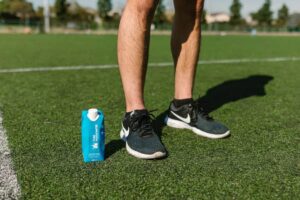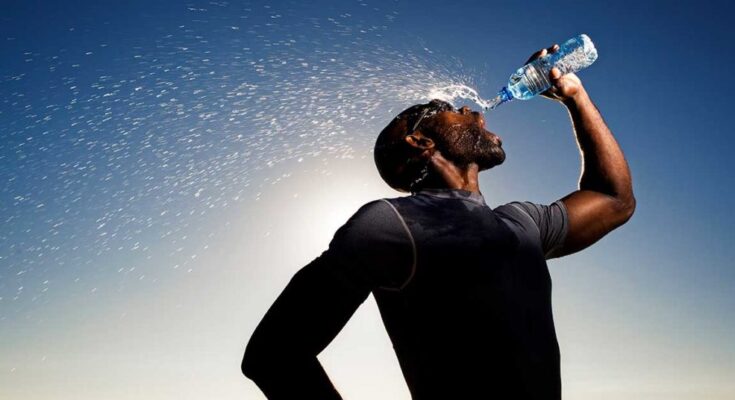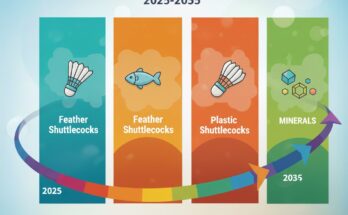Understanding Sports Hydration
Sports hydration is crucial for athletes and individuals engaging in physical activity. Hydration plays a vital role in athletic performance by optimizing physical and cognitive functions. Proper hydration helps regulate body temperature, transport nutrients, and remove waste products.
Dehydration poses significant risks during physical activity. Even mild dehydration can impair performance, decrease endurance, and lead to fatigue, muscle cramps, and dizziness. Severe dehydration can even result in heat exhaustion or heatstroke, which can be life-threatening.
Electrolytes, such as sodium, potassium, and magnesium, are essential for sports hydration. These minerals help maintain fluid balance, promote proper muscle function, and support nerve transmission. Electrolytes are lost through sweat during exercise, and their replenishment is crucial to prevent imbalances that can affect performance and overall well-being.
Including electrolytes in sports hydration, either through sports drinks or electrolyte-enhanced water, can help replenish what is lost through sweat and support optimal performance.
Newly-released sports hydration market analysis report by Fact.MR reveals that global sales of sports hydration products in 2022 were held at US$ 3 Billion & are expected to reach a valuation of US$ 5.3 Billion by 2033.
Companies focused in the report include
- PepsiCo Inc.
- The Coca-Cola Company
- Suntory Beverage and Food Ltd
- Red Bull GmbH
- Dr. Pepper Snapple Group, Inc.
- AJE Group
- Abbott
- Biosteel Nordics
- Britivic Plc
- GNC Holdings Inc.
- GoodSport Nutrition

Pre-sport Hydration: Setting the Foundation for Success
Pre-sport hydration is crucial for setting the foundation for success in athletic performance. Adequate hydration before exercise helps optimize physical and cognitive functions, as well as prevent dehydration during activity.
Pre-hydration is important because starting a workout or competition already dehydrated can negatively impact performance. It is recommended to begin hydrating several hours before exercise to ensure adequate fluid intake and hydration status.
Strategies for pre-sport hydration include drinking fluids in the hours leading up to exercise. This allows the body to absorb and distribute fluids effectively. It is important to choose appropriate fluids for pre-sport hydration. Water is generally sufficient for moderate exercise, while for intense or prolonged activities, sports drinks that contain electrolytes may be beneficial.
During Sports Hydration: Maintaining Performance and Preventing Dehydration
During sports, hydration is essential for maintaining performance and preventing dehydration during exercise. Understanding fluid and electrolyte loss during exercise is key to implementing effective hydration strategies.
Individual fluid needs vary depending on factors such as body weight, sweat rate, and environmental conditions. It is important to determine personal fluid needs to ensure adequate hydration during sports or exercise.
To stay hydrated during sports or exercise, it is recommended to drink fluids regularly throughout the activity. This helps replace fluids lost through sweat and maintain optimal hydration. Choosing the right fluids is important, as different types of exercise may have varying fluid and electrolyte requirements. Sports drinks that contain electrolytes can be beneficial for intense or prolonged activities.
Considering the duration and intensity of the activity is also crucial for hydration. Longer and more intense workouts may require increased fluid intake. Monitoring hydration status during exercise is important to ensure proper hydration. Pay attention to signs of dehydration, such as thirst, dry mouth, or dark urine.
Also Read: Unveiling the Future of Golf: Trends & Innovations Shaping the Next Generation of Golf Products
Post-sports Hydration: Recovery and Replenishment
Post-exercise hydration is important for recovery and optimizing performance for future workouts. Replenishing fluids and electrolytes after physical activity is crucial to restore hydration levels and electrolyte balance.
In addition to fluids and electrolytes, including carbohydrates and protein in post-sports hydration can help replenish energy stores and support muscle repair and growth.

Timing is key when it comes to post-sports hydration. It is recommended to consume fluids and nutrients within 30 minutes to 2 hours after exercise to maximize the benefits of recovery.
Optimal post-sports hydration practices involve consuming a combination of fluids, electrolytes, carbohydrates, and protein in appropriate quantities based on individual needs and the intensity of the workout.
Personalizing Sports Hydration Strategies
Factors to consider for individual hydration needs include climate and environmental conditions. Hot and humid environments increase sweat and fluid loss, requiring higher fluid intake.
Sweat rate and electrolyte loss vary among individuals. Some people may have a higher sweat rate or lose more electrolytes, necessitating increased fluid and electrolyte intake.
Body weight and hydration status monitoring are important for determining individual hydration needs. Regularly weighing yourself before and after exercise can help estimate fluid loss. Monitoring hydration status through urine color and frequency can also provide insights into hydration levels.
For personalized hydration plans, seeking professional guidance, such as from a sports nutritionist or registered dietitian, can be beneficial. They can assess individual needs, provide specific recommendations, and help develop a customized hydration plan based on factors such as activity level, body composition, and personal goals.
Conclusion
Proper hydration is essential for optimal performance and overall health during sports and exercise. Pre-sport hydration sets the foundation for success by ensuring adequate fluid intake prior to activity. During sports hydration helps maintain performance and prevent dehydration, requiring regular fluid intake and consideration of individual needs. Post-exercise hydration plays a crucial role in recovery and replenishing fluids, electrolytes, carbohydrates, and protein. Factors such as climate, sweat rate, body weight, and hydration status should be considered to determine individual hydration needs. Seeking professional guidance can provide personalized hydration plans tailored to specific goals and requirements. By prioritizing hydration and implementing appropriate strategies, athletes and individuals can optimize their performance, prevent dehydration, and support overall well-being.



